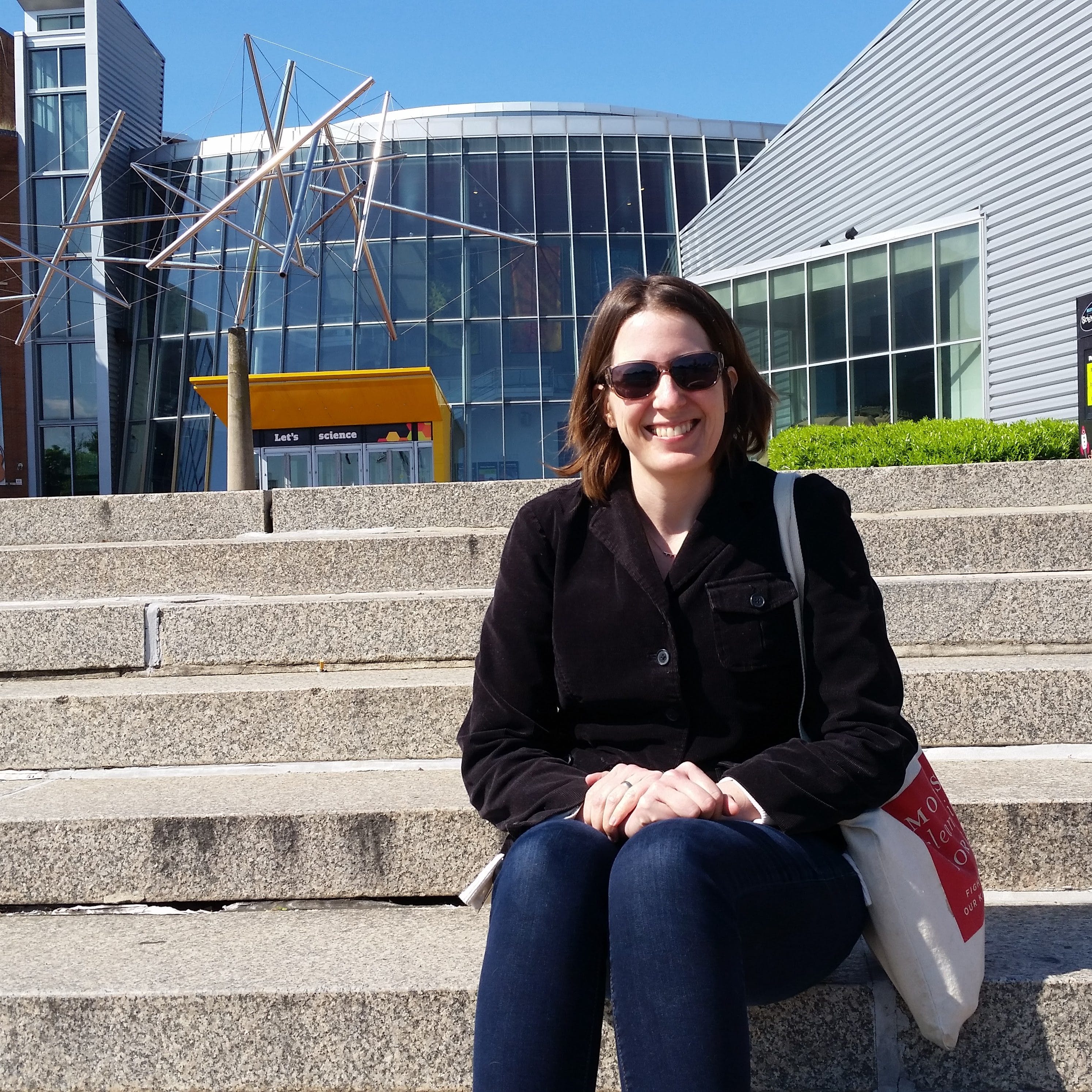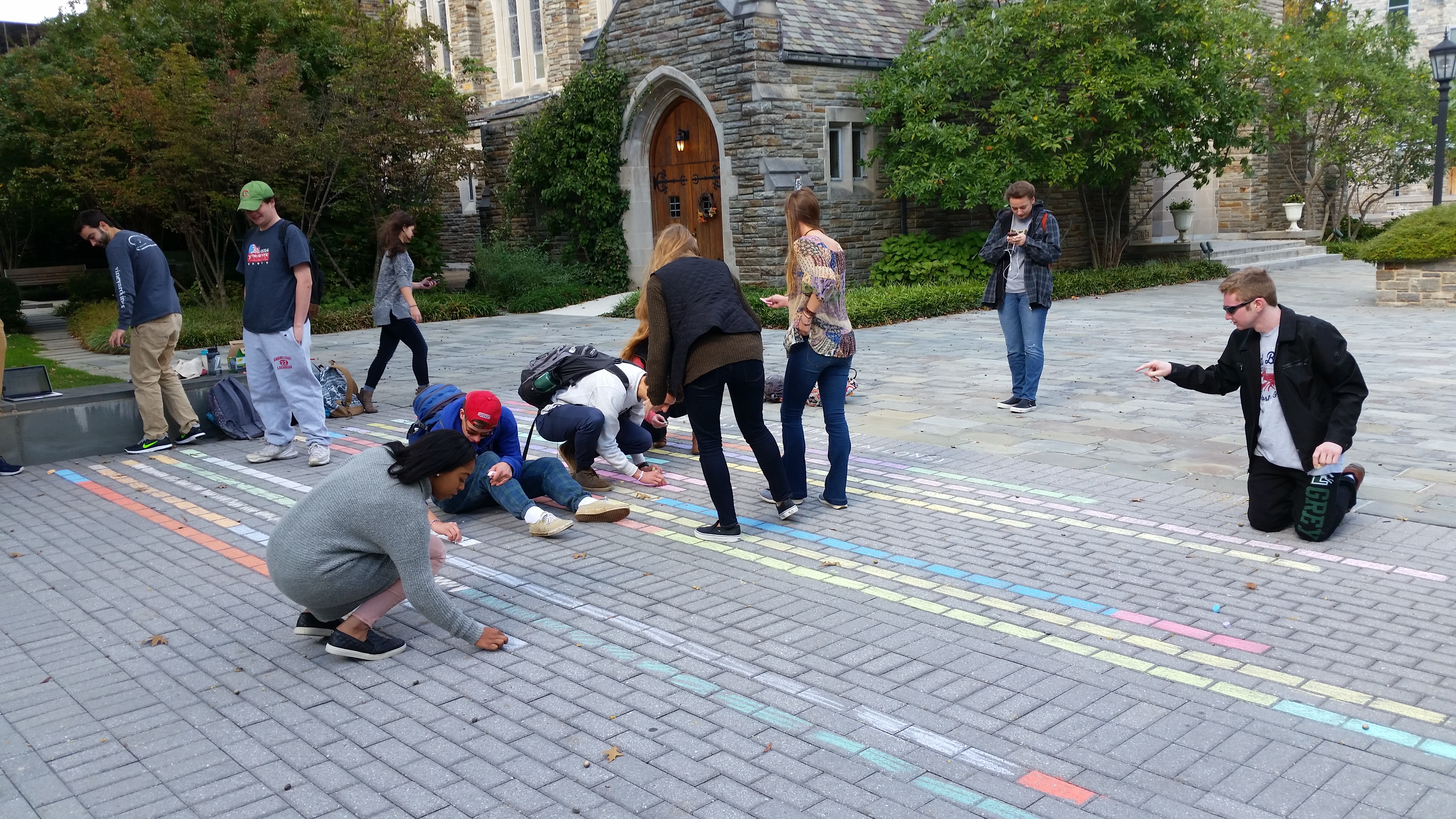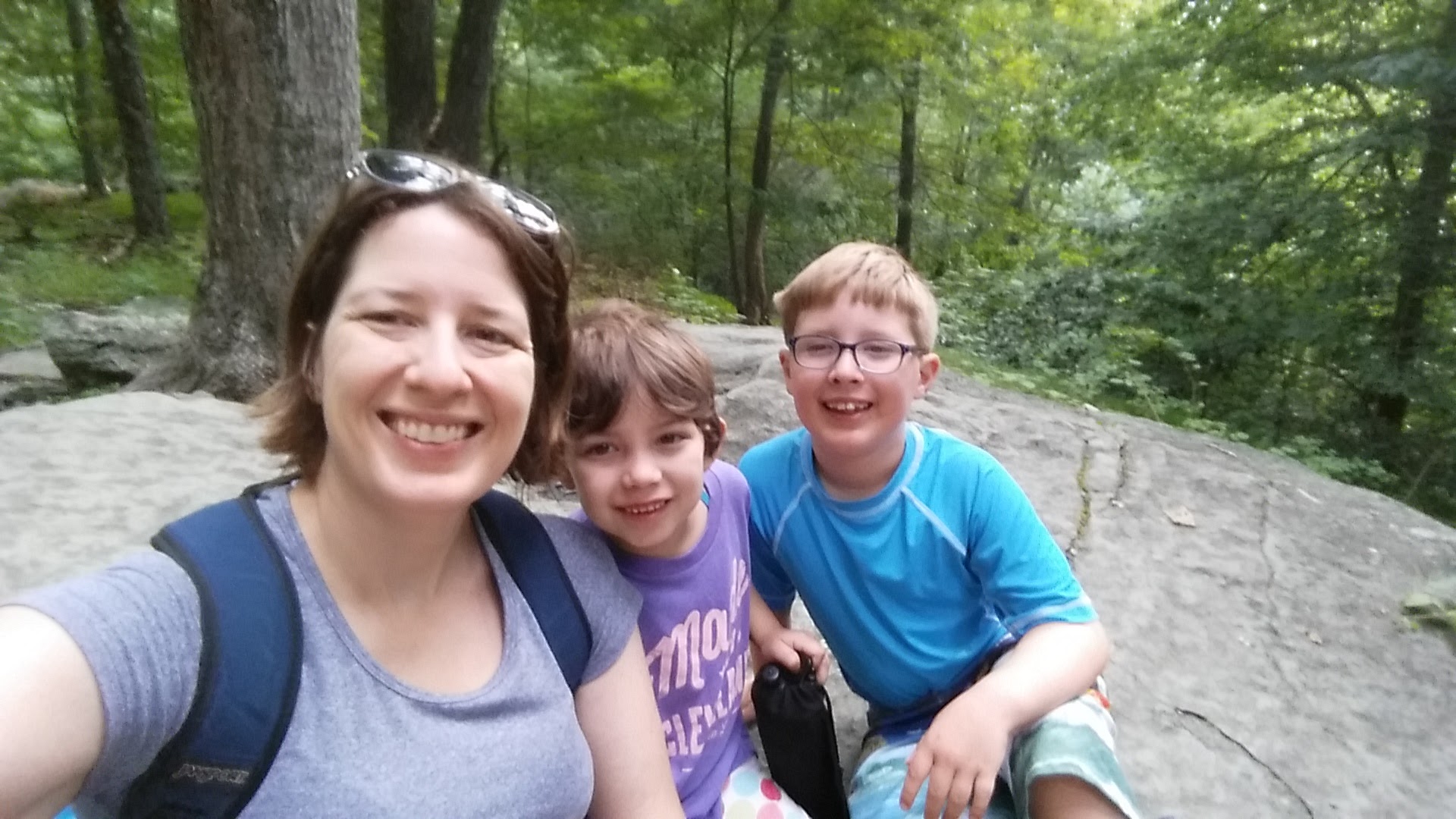Elizabeth Dahl
Dr. Elizabeth Dahl is an Associate Professor of Chemistry at Loyola University Maryland, located in Baltimore Maryland. She received her BS from the University of Miami in Marine Science and Chemistry and her MS and PhD in Earth System Science from the University of California Irvine. Her research focuses on how the oceans and other water bodies produce atmospheric alkyl nitrates. During her postdoctoral work at SUNY ESF she delved into the world of aerosols, including conduction research at the Bermuda Biological Station. Over her time at Loyola, her research on alkyl nitrates has involved many undergraduate students in both the chemistry and biology programs, introducing many of these students to marine biogeochemistry and what it means to consider the big picture. The research project she is currently developing with students involves looking at the impact of urban forests on neighborhood air quality. Elizabeth is working with a local nonprofit group engaged in renewal of greenspaces in Baltimore for this project, which was designed to bring an environmental justice component into her research to meet with the University’s mission of social justice.
As the sole Earth Scientist at Loyola, masquerading as an analytical chemist, Elizabeth had to help raise the scaffolding for systems thinking within the sciences and among colleagues outside of the sciences. When she realized that the chemistry majors she was teaching had no understanding of the greenhouse effect or climate change, she decided to change that and get people interested in learning about the earth. In her second semester at Loyola she started an interdisciplinary science seminar series to try to bring together students and faculty to learn about science and research that combined elements of many sciences. One of the first speakers in the series was ESWN member Hope Jahren. This all led to the genesis of her Global Environment course, which is now an introductory course for the new Environmental Studies minor. This course combines systems thinking, Earth science, and environmental justice to help the students connect with and understand the importance of the Earth system and why scientists think we have entered the Anthropocene. In this class she likes to use creative ways to get students thinking about the environment and their impacts.
Although primarily working internally at Loyola, Elizabeth is a tireless champion on the environment, and enjoys working with the Environmental Action Club, as well as with fellow faculty and staff to promote understanding and activism in support of a livable future. This includes developing an Environmental Film Series and advocating always for bringing more environmental programming, speakers and education opportunities to the university. Along with a colleague in the Biology Department and colleagues at two other local liberal arts schools, she is working to develop the Baltimore Environmental Exchange (BEE) network for environmental educators in the area to work together to exchange ideas and promote environmental courses and programs among the Baltimore College Exchange.
Elizabeth’s involvement in ESWN has been invaluable to balancing life on the tenure track and through the birth of her two children. She credits much of her success to the advice and support of the network through the tenure process. She still calls on lessons learned from one of the ESWN leadership workshops to navigate everything from supervising students to dealing with difficult people in meetings. She loves that she can count on the members of ESWN to chime in and provide feedback on science, teaching and life, and for thoughtful discussions. ESWN members have also volunteered to explain their science to undergraduate students at Loyola. Elizabeth tells people about ESWN all the time because of everything she learns from it – there’s nothing like having thousands of other scientists to back you up!
When she isn’t working she enjoys getting outside with her kids and dogs and exploring all the great things Maryland has to offer.



